
I recently had the pleasure of attending the 2014 meeting of the North Sea European dementia group, held in Dijon, France. This was an unusual meeting in that it was not a large formal scientific conference attracting only researchers, but a small and informal meeting that attracted researchers, practitioners, private care directors, and a research funder. Around 25 were in attendance and over three days we got to know each other, exchange ideas, and make important connections for potential future pan-European collaborations.
Days 1 and 2 – the meeting
The first two days was a series of presentations with discussion. This began with a representative of each European country providing an introduction of their organisation and an update on work in progress. We then had a series of presentations, and of note, some was of work that was just starting or half way through, and some presented service improvement initiatives yet to be evaluated using research methodology. This was good as it afforded the sharing of ideas at their initial stages when changes can be made, rather than at the end when already completed. I presented a qualitative paper on our NIHR-funded project on the social care and support needs of people with dementia and sight loss. This was well received and as suspected, not been given much consideration before. It led to an interesting discussion around diagnosis, given that tests to indicate dementia symptoms often rely on good vision (e.g. to the clock drawing task).
Perhaps the most useful aspect of these two days, during the presentations and informal discussions over meals, was the sharing of what current dementia care looks like in each other’s countries, the limitations to such care, and the challenges and opportunities that lie ahead in driving forward improvement. The mix of researchers and those directly involved in managing services provided a useful forum for the identification of the challenges and opportunities to working together. In particular, to make sure that research is grounded in the real-world constraints practitioners work within, and to make sure that the novel initiatives practitioners try out are formally and systematically evaluated in order to demonstrate benefit to people with dementia and cost-effectiveness. In particular, fidelity of interventions was raised as an issue, in ensuring that those who claim to deliver best practice actually do deliver it and in the way specified.
Day 3 – the visits
Before heading back, we spent the last morning visiting local services for older people with dementia. I was with the group that visited a day care centre and an intergenerational area. The day centre was a relatively large space and so caters for up to 20 older people per day, much more than the average day centre. They had several rooms for different activities (rest room, computer room, physical activity room, etc.), along with a garden. This was on the same site as a care home, and so for those that eventually need to move into a care home, the day centre provides a nice source of continuity for those that become residents. It was pleasing to see a lot of the creative work that the older people there as this was on display all over. One display that caught my eye was one of the older people helping children with their art work.
We then went on to an initiative that is rare in France and one that I had not come across before. Over ten years ago a plot of land was allocated for providing services for people in the city. At the time it was decided that the same space be used not only for catering for older people to live independently but with support (like sheltered housing), but also to provide for children under five (pre-school) and social housing for the general adult population who need it. In this same plot we got to see the living spaces for older people with dementia, social housing, and could see the pre-school right next to it. I unfortunately had to cut this visit short to head back for my flight, but it was great to see an initiative that at its heart was trying to re-connect the generations. We know from classic theories of the psychology of ageing that intergenerational relationships provides benefits for all, whereby the older person shares their wisdom and perspective to the benefit of the younger person, let alone connection with everyday family life. It would be interesting to see what activities best bring these groups together to facilitate social interactions between the generations.
In sum, the meeting was a useful learning experience of what is happening in other European countries and provided an important set of connections for potential future collaborations. I can recommend attending such meetings, even if they do not have the prestige of large scientific conferences. The more intimate and informal environment was useful for learning about work in its early stages and to learn more about the contexts in which our European collaborators operate within.
Dr Samuel Nyman
BUDI and Psychology Department, SciTech
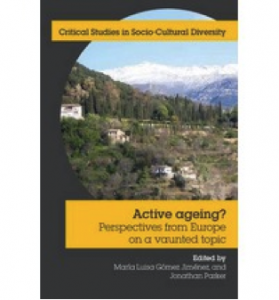



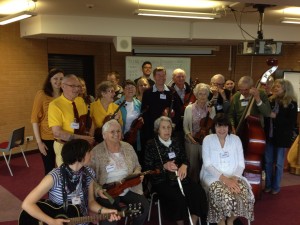
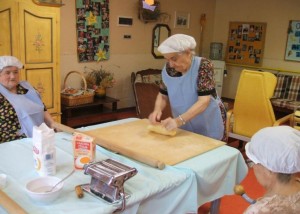
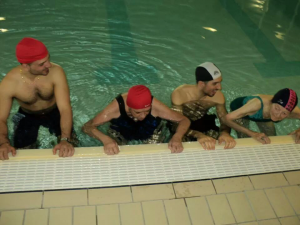
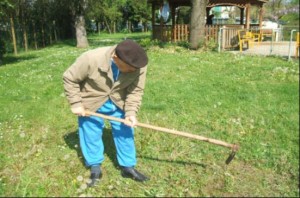
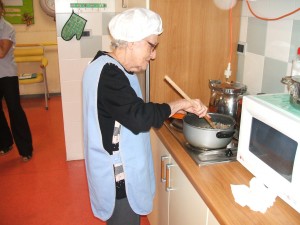
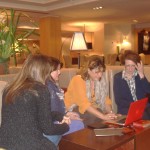

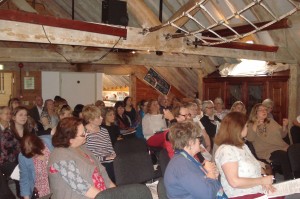

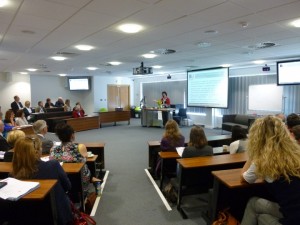



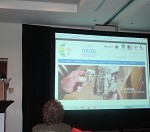
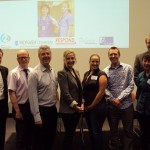
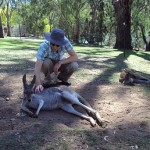












 Beyond Academia: Exploring Career Options for Early Career Researchers – Online Workshop
Beyond Academia: Exploring Career Options for Early Career Researchers – Online Workshop UKCGE Recognised Research Supervision Programme: Deadline Approaching
UKCGE Recognised Research Supervision Programme: Deadline Approaching SPROUT: From Sustainable Research to Sustainable Research Lives
SPROUT: From Sustainable Research to Sustainable Research Lives BRIAN upgrade and new look
BRIAN upgrade and new look Seeing the fruits of your labour in Bangladesh
Seeing the fruits of your labour in Bangladesh ECR Funding Open Call: Research Culture & Community Grant – Apply now
ECR Funding Open Call: Research Culture & Community Grant – Apply now ECR Funding Open Call: Research Culture & Community Grant – Application Deadline Friday 12 December
ECR Funding Open Call: Research Culture & Community Grant – Application Deadline Friday 12 December MSCA Postdoctoral Fellowships 2025 Call
MSCA Postdoctoral Fellowships 2025 Call ERC Advanced Grant 2025 Webinar
ERC Advanced Grant 2025 Webinar Update on UKRO services
Update on UKRO services European research project exploring use of ‘virtual twins’ to better manage metabolic associated fatty liver disease
European research project exploring use of ‘virtual twins’ to better manage metabolic associated fatty liver disease